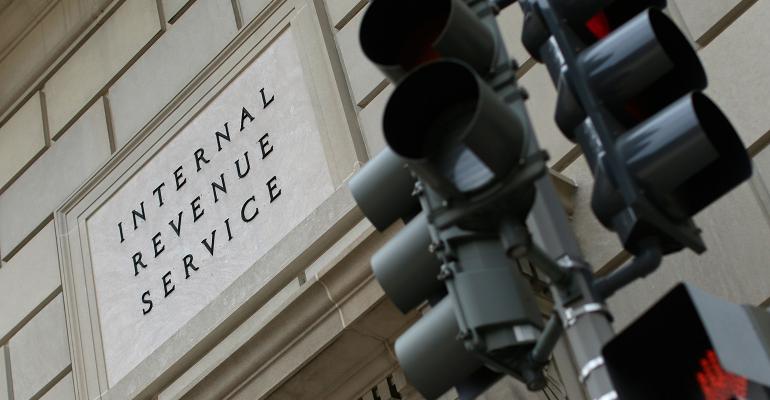In Internal Revenue Service Notice 2020-32 (the Notice), the IRS takes the position that loan forgiveness under the Paycheck Protection Program (PPP) causes the complete disallowance of deductions for the salary, rent, etc. expenses paid with the PPP. In my prior article, I explained why loan forgiveness shouldn’t result in complete disallowance of the deduction under Internal Revenue Code Section 265. Here, I discuss problems with the Notice’s alternative reimbursement theory for disallowing the deduction.
Alternative Theory
At the end of the Notice the IRS asserts: “The deductibility of payments of eligible section 1106 expenses that result in loan forgiveness under section 1106(b) of the CARES Act is also subject to disallowance under case law and published rulings that deny deductions for otherwise deductible payments for which the taxpayer receives reimbursement,” citing, among other authorities, the decision of the 2nd U.S. Circuit Court of Appeals in Burnett v. Commissioner, 356 F.2d 755, 759-60 (5th Cir. 1966) (Emphasis supplied). Is this alternative theory for disallowing the small business owner’s deductions for the payroll, rent, etc. expenses it incurs, prior to the PPP loan being forgiven by the Small Business Administration (SBA), supportable?
Inherently Inconsistent
The most glaring problem with this position of the IRS at the end of the Notice is that it’s inherently inconsistent with all that comes before it in the Notice. For most of the Notice, the IRS argues that the PPP amount that’s forgiven would otherwise be taxable cancellation of indebtedness or other income to the small business owner—that is, it’s an amount that would have been taxable to the small business owner as cancellation of indebtedness or other income, but for the specific exemption by Congress in the Coronavirus Aid, Relief, and Economic Security (CARES) Act. Congress itself implied this when it provided in IRC Section 1106(i) of the CARES Act that, for purposes of the IRC, any amount that would otherwise be includable in gross income of the recipient by reason of forgiveness described in Section 1106(b) “shall be excluded from gross income.” According to the IRS in the Notice: “Thus, section 1106(i) of the CARES Act operates to exclude from the gross income of a recipient any category of income that may arise from covered loan forgiveness, regardless of whether such income would be (1) properly characterized as income from the discharge of indebtedness under section 61(a)(11) of the Code, or (2) otherwise includible in gross income under section 61 of the Code.”
But if the loan forgiveness is otherwise taxable gross income that’s deemed excluded, how can it also be considered a reimbursement under Burnett and the other authorities cited by the IRS at the end of the Notice, reimbursements that aren’t even considered income by the cases and IRS rulings cited by the IRS in the Notice? It’s either cancellation of indebtedness or other income deemed excluded by the CARES Act, or it’s nontaxable reimbursement; it can’t be both. And for most of its Notice, the IRS argues that it’s cancellation of indebtedness or other income deemed excluded by the CARES Act.
Similar to its argument based on IRC Section 265 grounds, the IRS’ argument on a reimbursement theory is specious, at best, and patently inconsistent, at worst. On the one hand, the IRS argues throughout the Notice (and rightly so, based on the clear implication by Congress in the language of the CARES Act) that the forgiveness of the loan by the SBA constitutes tax-exempt cancellation of indebtedness or other income to the small business owner. But at the end of its Notice, the IRS makes an alternative, yet inconsistent, argument that the forgiveness doesn’t constitute income at all, but instead constitutes a nontaxable reimbursement by the SBA of expenses incurred by the small business owner.
At the end of the Notice, the IRS asserts that the expenses are “also” not deductible under a theory that the SBA, by forgiving the small business owner’s loan, is, in effect, reimbursing the small business owner for certain expenses incurred by the owner. The IRS can attempt to make this argument, but it can’t do so and argue that the loan forgiveness is nontaxable income to the business owner under its Section 265 position. And because cancellation of indebtedness, which by its express terms is what’s taking place when the SBA forgives the small business owner’s loan, has always been considered income by Congress, the courts and the IRS, it’s going to be very difficult for the IRS to have it both ways in this situation.





